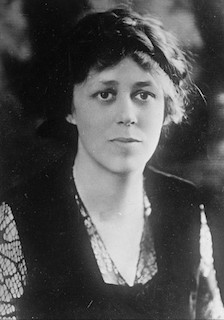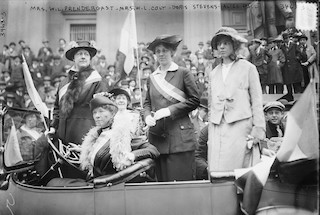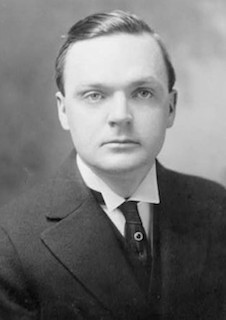Doris Stevens, 1888 – 1963

Doris Stevens was an American suffragist, an author, and a prominent advocate for women's legal rights. Originally from Omaha, Nebraska, Stevens became active as a suffragist during her time at Oberlin College, where she earned a degree in sociology in 1911. She taught briefly and then became a paid organizer for the National American Woman Suffrage Association's Congressional Union for Woman Suffrage (CUWS). Stevens organized party delegates for each of the 435 Congressional districts in an effort to achieve nationwide enfranchisement for women. She also participated in the Silent Sentinels vigils outside the White House from 1917 – 1919, a protest aimed at forcing the passage of a constitutional amendment for women's voting rights. Stevens was arrested on multiple occasions and wrote a memoir in 1920, Jailed for Freedom, outlining the struggle. Once voting rights for women had been achieved, Stevens turned her attention to the legal status of women and fought for the Equal Rights Amendment.

In 1931, she became the first female member of the American Institute of International Law, advocating until 1933, when the first treaty to secure international rights for women was signed. Stevens was a true feminist who spent her entire life fighting for women's rights. In her later years, she campaigned for the recognition of feminist studies as a legitimate academic discipline at American universities and colleges, lobbying Radcliffe College to establish a Lucy Stone Chair of Feminism. In 1986, Princeton University established an endowed chair in women's studies in her honor through the Doris Stevens Foundation.

Stevens married Dudley Field Malone, a prominent liberal attorney, politician, and activist, in Peekskill, NY on December 9, 1921. Malone had become an advocate for women's suffrage and had worked to free some of the "Silent Sentinels" activists who were jailed in 1918. The couple divorced in Paris in October 1929; her address at the time, as reported in The New York Herald Tribune, was the University Women's Club at 4 rue de Chevreuse. According to a 1930 New York Times article, "Her plea was based on the alleged impossibility of two persons of equally strong mind living harmoniously together" (January 29, 1930).
Sources
- Marino, Katherine M. Feminism for the Americas: The Making of an International Human Rights Movement. Chapel Hill: The University of North Carolina Press, 2019.
- October 1929 clipping about the divorce of Doris Stevens and Dudley Field Malone, RH archives.
- Stevens, Doris. Jailed for Freedom. New York: Boni and Liveright, 1920.
- Wireless to The New York Times. "Dudley F. Malone to Wed in London." The New York Times, January 29, 1930, p. 25.